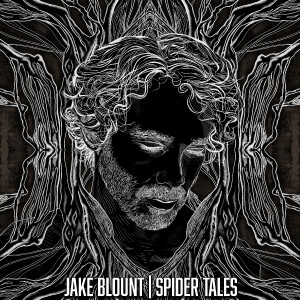 Jake Blount‘s Spider Tales exists on a couple of different planes simultaneously. On one level, the level of the music itself, it’s as simple and straightforward as all the best stringband music. A few simple instruments, old songs, played and sung in a way anyone can understand. On another level, it’s as twisty and tricky and sticky as a spider’s web. That’s the level where art and history and mythology and enslavement and oppression and freedom meet and intertwine and throw off sparks.
Jake Blount‘s Spider Tales exists on a couple of different planes simultaneously. On one level, the level of the music itself, it’s as simple and straightforward as all the best stringband music. A few simple instruments, old songs, played and sung in a way anyone can understand. On another level, it’s as twisty and tricky and sticky as a spider’s web. That’s the level where art and history and mythology and enslavement and oppression and freedom meet and intertwine and throw off sparks.
Blount is an African-American fiddler and banjo player, and singer too. He’s one of a growing number of such players who are reclaiming the roots of American stringband, country, bluegrass and folk music, a large part of which comes from African sources and perspectives. The title of the album is a nod to Anansi, the trickster-god in the pantheon of west African religion of the Akan peoples, which were repurposed as illustrations of the deception through trickery of the oppressive authority figure.
“The Spider Tales survived the Middle Passage, and persisted amongst enslaved Africans and their descendants in the American colonies for centuries,” Blount says in the album’s notes. “The telling of Spider Tales was (and is) not only a pastime, but an act of cultural rebellion. We feel their innate significance as vestiges of our ancestors that live on in us: their stolen progeny.”
Blount chose the instrumental tunes and songs through extensive research into the black and indigenous roots of Appalachian music. They resonate also with his experiences of growing up black and queer in the South’s conservative culture. He’s joined on most of these pieces by fiddler Tatiana Hargreaves and percussive dancer Nic Gareiss, both queer activists. Also contributing are Rachel Eddy on guitar, Haselden Ciaccio on bass, and producers Jeff Claus on banjo-uke and Judy Hyman on fiddle.
Right out of the gate you know you’re in a special presence. The program opens with Blount on banjo playing the old-time banjo piece “Goodbye, Honey, You Call That Gone” with Gareiss shuffling and tapping out the percussive rhythm, followed quickly by “Roustabout” on banjo and Hargreaves’s fiddle, Blount singing the bare-bones lyrics, from North Carolina black banjo and guitar layer Dink Roberts. Then comes the haunting version of Lead Belly’s “Where Did You Sleep Last Night,” reinterpreted through Blount’s experience of seeing non-hetero young friends becoming homeless because of family prejudice.
“For me there was a very direct connection between what I’d gone through in the queer community and this narrative of disappearance and loss that surrounded the black community in the South throughout much of our nation’s history, and still arguably does,” he says.
Blount doesn’t highlight just the African-American experience of stringband music, though. Several of these tracks come from fiddlers in the American Indian community from Appalachia and elsewhere: The dramatic “Old-Timey Grey Eagle” and the very old-time “Done Gone” come from Manco Sneed, a North Carolina Cherokee fiddler. “Done Gone” features Hargreaves prominently on this duet with Blount. The swaying, shuffling “Rocky Road to Dublin” comes from brothers Osey and Ernest Helton, a Cherokee banjo-fiddle duo from Asheville, N.C. Fiddler Osey learned to play from a formerly enslaved African-American man. This one has great production for full band, including both Blount and Hargreaves on fiddle with Eddy on guitar and rhythm by Ciaccio on bass and Claus on banjo-uke.
The songs here are particularly instructive. One that masquerades as a gospel song, “Move, Daniel,” comes from the enslaved Gullah-Geechee people; a lilting refrain of “Oh, lord, praise dinner come / oh, lord, sinner going to hell” certainly gives the impression that it’s a worship song, but it actually was used as a field shout to guide one of their men on a safe route to the master’s smokehouse so he could steal meat for their dinner! Blount’s deep banjo pairs brilliantly with Hargreaves’ fiddling and Gareiss’ foot percussion.
A couple of my favorite instrumentals coincidentally have birds in the title. Blount, Hargreaves and Gareiss do a bang-up job on the sprightly “Blackbird Says To The Crow,” and there’s just something about the onomotopoeitic “English Chicken” for banjo and fiddle – if I knew how to clog, I’d be doing it to this one.
This album’s packaging includes very helpful notations on the songs, both provenance and key notations. Kudos to Free Dirt for an excellent project in every respect. It’s great to see Appalachian music being recorded and released that reflects the diversity that has always existed within it.
(Free Dirt, 2020)
